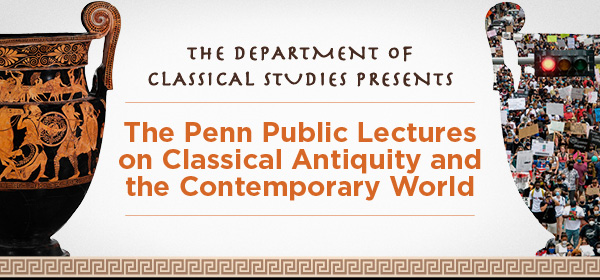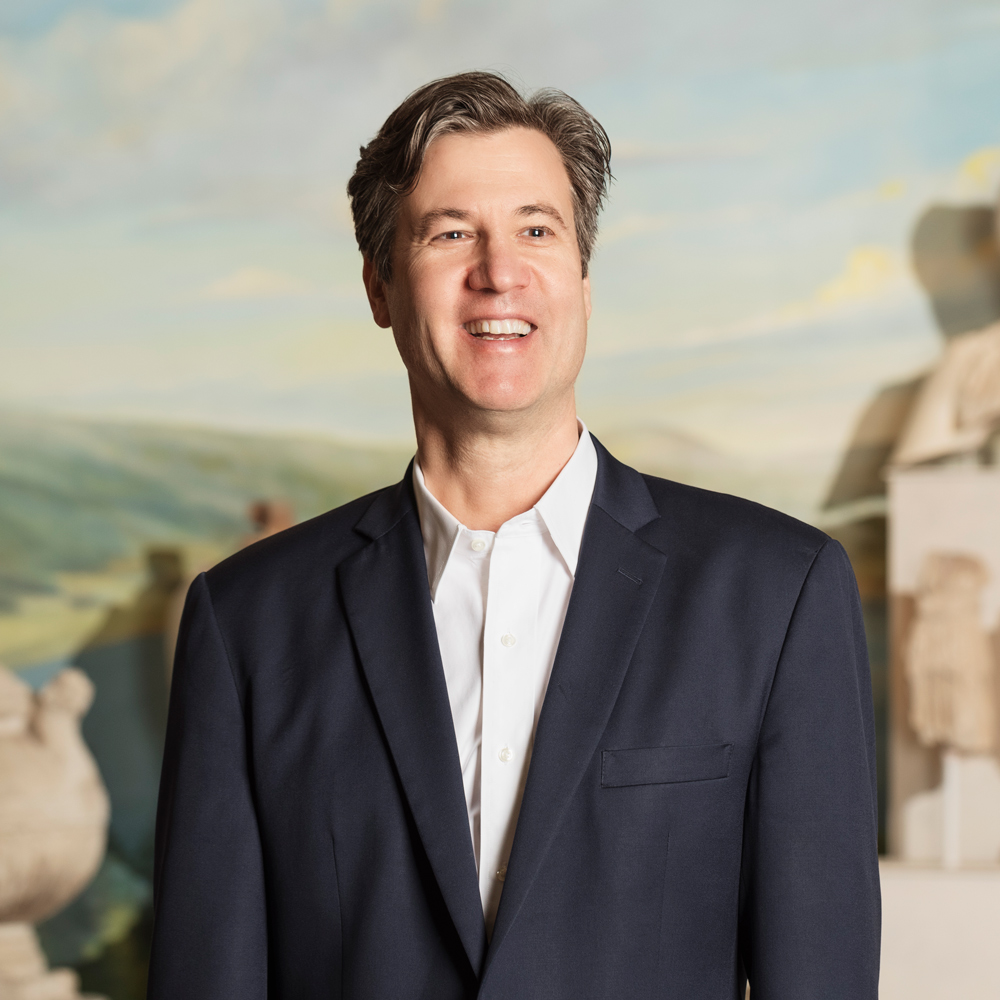Forget what you think you know.
A new series from the Department of Classical Studies wants to shake up our understanding not just of the classics but also of how we construct our cultures, says Peter Struck, Professor and Department Chair. We asked him about the goals of the lecture series and what people can learn from ancient works.
What is the goal of the Penn Public Lectures on Classical Antiquity and the Contemporary World?
The main thing is to help us think anew about how we make up our current present out of the bits and pieces of the past. We pick and choose. We decide what we want to emphasize. We decide who we are.
If you think there’s some purity of cultural forms somewhere, you should park that assumption at the door, because cultures don’t work that way. They’re constantly renewing themselves, borrowing from other places, borrowing from their own past, whatever avenues they choose to draw from. What you get in the end is a wonderful mix, at any given time.
The Penn Public Lectures on Classical Antiquity and the Contemporary World
Co-Creating Antiquities
- “Public Matters: Prompts for the Study of Ancient Cultures” – April 14, 2022 at 5 p.m.
- “The Skills of World-Making” – April 19, 2022 at 5 p.m.
- “Collaborator, Translator, Constructor” – April 21, 2022 at 5 p.m.
All talks at Penn Museum in Widener Lecture Hall.
Click here for more information.
Are the classics foundational?
Some pieces of the past live in our contemporary world because of direct attempts to recapitulate their ways of doing things. But to imagine that there's some simple line that goes from Homer's world through Italy, through Europe, and then somehow to the United States, is bizarre. Any of us has 64 great-great-great grandparents. We just decided to pick one and say, ‘Oh, that’s our patriarch.’
What classical studies do is help us understand the complexity of how cultures are created, and to look for the ways in which people deliberately trace ancestries in a way that works better for them, in an ongoing process. Our materials have been implicated in a simplistic narrative of what those cultural links are all about, and how cultures are made through time. What we want to do is to reexamine that.
It's a question that is urgent for those in my field, too. What's happening in my discipline is a real self-assessment as to why? What is our story? Why should people be studying this material? We’ve paired that with this public lecture.
How are you selecting the speakers?
They will be some of the best, most probing, savviest, most intelligent voices in our discipline today, to help us re-understand ourselves and our discipline, and find the new avenues and the new ways of positioning the material.
The inaugural lectures will take place on April 14, 19, and 21, with speaker Joy Connolly, who is President of the American Council of Learned Societies (ACLS) and a Penn graduate alum. She has, from our discipline as her home, expanded her views to being a beacon of insight into the humanities in general, and from that perspective that she developed some very strong views that have helped her to lay down some predicates as to where we need to go to move forward. And she just has a way of speaking to broad populations.
What else is changing in classics today?
We’re embracing that the human family is rich and broad. Within that group of Homo sapiens, we've got tiny little pockets of surviving cultural stuff from the deep past. In East Asia, South Asia, the ancient Near East, and in Greece and in Egypt, we have material from several millennia ago. That's unique, and it's lovely. Let's get to know this deep antiquity of our pieces of our human family. As we do, we'll understand the pathways that lead from some ancient cultures to other kinds of cultural pathways.
What can people today gain from reading the classics themselves?
For me, the most important thing is just how good this stuff is. I have seen it many times just burrow itself into people's brains and they just see the world differently. You are seeing your own culture as something in which you're a participant, as a co-creator, and not as a receiver of some impenetrable, deep past that just is there and is all given. None of it's given.
There's an aspect of liberal arts studies that liberates you. You see the world differently, and that is deeply empowering. We've seen that power expressed in different modes across time and across parts of many cultures. There's something wonderfully liberating about digging into the details of a complex distant text. That might be a Russian novel. It might be the Upanishads. It might be works by Confucius. It's just there's insight there, and perspective. Those things are precious and valuable.
The Penn Public Lectures on Classical Antiquity and the Contemporary World are made possible by a gift from the Arete foundation in recognition of Edward E. Cohen. C’59, L’65, and his contributions to the field of classical studies.





